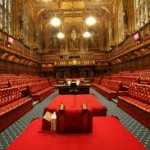When Less Is Best
First published in The New York Times, 20 March, 2007.
Why are we in Afghanistan? Vice President Cheney talks terror, Britain focuses on narcotics. The European Union talks ‘state-building,’ others gender. On a different day, the positions seem interchangeable. Five years ago, we had a clear goal. Now we seem to be pursuing a bundle of objectives, from counterinsurgency to democratization and development, which are presented as uniform but which are in fact logically distinct and sometimes contradictory.
Finance officers in Kabul and shepherds in Kandahar want to know what we did with the $10 billion we spent in the last four years. So do any number of commentators on Afghan TV and radio. And when Helmand villagers see soldiers from countries thousands of miles away carrying guns and claiming to be only building schools, they don’t believe them.
I have noticed that many Afghans now simply assume we are engaged in a grand conspiracy. Nothing else in their minds can explain the surreal gap between our language and performance. The United States needs to be honest about what it wants from Afghanistan and what it can achieve.
We should remember that we came first to protect ourselves against terrorist attack. Afghans can understand this and help. But counterterrorism is not the same as counterinsurgency. Counterterrorism requires good intelligence and Special Forces operations, of the sort the U.S. was doing in 2002 and 2003. Recently, however, NATO has become involved in a much wider counterinsurgency campaign, involving tens of thousands of troops. The objective now is to wrest rural areas from Taliban forces.
But many of the people we are fighting have no fixed political manifesto. Almost none have links to Al Qaeda or an interest in attacking U.S. soil. We will never have the troop numbers to hold these areas, and we are creating unnecessary enemies. A more considered approach to tribal communities would give us better intelligence on our real enemies. It is clear that we do not have the resources, the stomach, or the long-term commitment for a 20-year counterinsurgency campaign. And the Afghan Army is not going to take over this mission.
Our second priority should be to not lose the support of the disillusioned population in the central and western part of the country. We have spent billions on programs that have alleviated extreme poverty and supported governance but have not caught the imagination of Afghans. Afghans are bored with foreign consultants and conferences and are saying, ‘Bring back the Russians: at least they built dams and roads.” To win them over we should focus on large, highly visible infrastructure to which Afghans will be able to point in 50 years — just as they point to the great dam built by the United States in the 1960s. The garbage is still seven feet deep and buildings are collapsing in Kabul. We can deal with these things and leave a permanent symbol of generosity.
Once we are clear about our own interests, we can think more clearly about the third priority, which is to improve Afghan lives through development projects. There are excellent models, from U.N. Habitat to the Aga Khan network, which has restored historic buildings, run rural health projects, and established a five-star hotel and Afghanistan’s mobile telephone network. The soap business that the American Sarah Chayes has developed with Afghan women has been more successful than larger and wealthier business associations. Such projects should be separated from our defense and political objectives.
Sometimes it is better for us to do less. Dutch forces in the province of Uruzgan have found that, when left alone, the Taliban alienate communities by living parasitically, lecturing puritanically and failing to deliver. But when the British tried to aggressively dominate the South last summer, they alienated a dangerous proportion of the local population and had to withdraw. Pacifying the tribal areas is a task for Afghans, working with Pakistan and Iran. It will involve moving from the overcentralized state and developing formal but flexible relationships with councils in all their varied village forms.
The conventional wisdom seems to be that we squandered an opportunity in Afghanistan in 2002 and 2003, being distracted by Iraq and not bringing enough troops or resources. But my experience in Afghanistan has led me to believe that the original strategy of limiting our role was correct.





